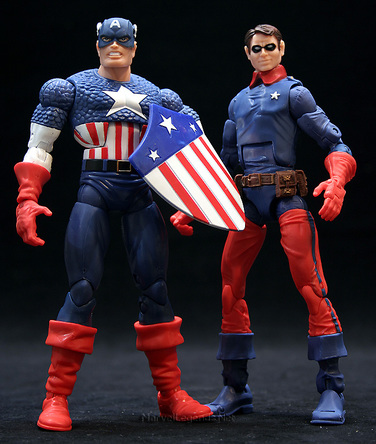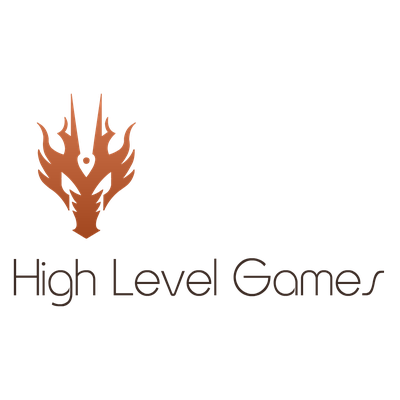Only Bucky Stays Dead or 3 Points About How Comics Have Informed My Thoughts on Character Death25/3/2016  I’m not paranoid* but Corporate keeps messing with me, which is weird because I’m not even sure they’re a real company. Every time I try to write a post that isn’t a list some dude in a Minecraft t-shirt, making airplane noises, shows up and serves me with a “cease and desist” order. Additionally, and I’m not quite sure but I think the Fantastic Corporate Team at Higher Level Games™, might be helpfully editing my work. It’s killing me inside. Speaking of imminent death; for those of you who don’t know; death is a unilateral occurrence in role-playing, comic books, and real life. As both a reader and a player, I can see death is an important part of the narrative/game, and there are some remarkable similarities to how it plays out in both mediums. 1) “I never saw it coming…” I once had a GM state, very eloquently, during an intensely fun session of D&D, that “[in-game] death should hurt” or it means nothing. While a death of a key character in comics can be used to signify the intensity and seriousness of a situation for the reader, it often highlights the emotional attachment that both writers and readers have for well-established and beloved characters. I have found that the same is no less true for my gaming and unfortunately influences how I play. I become attached to my characters on a personal level and even though I attempt to minimize my metagaming, it changes how I manage in-game risk. I want my favorites to live to fight another day; I want them to vanquish their foes, I WANT THEM TO LIVE FOREVER... but circle of life and all that crap. Anyways, I never see it coming. 2) “Oh man, that guy was awesome!” Often when I’m playing with my crew, something in game will elicit an, “Oh man! Do you remember when [insert character name here]?” The truly great characters we remember are those that have gone out guns blazing (or in muffled whimpers), their names and deeds etched into a lasting communal game narrative. In comic books I call this ‘Epic Heroics’. These deaths are so significant comic geeks still discuss the success of their execution years later. Whether it was Nightcrawler’s final sacrifice in X-Force #26 or my friend’s PC Augustine’s (that guy was so badass) last stand in the Ravenloft domain of Har’Akir, people talk about it. The difference is while in comics the discussion lasts a month, among role-players this goes on for decades. Alternately, going with a whimper can immortalize you as well; first edition D&D traps can facilitate the majority of these amazing yet embarrassing recollections. 3) “Yes, I know.” No one stays dead in comic books. Well, depending on the game this is true in gaming as well. A little ‘Gentle Repose’, a little ‘Raise Dead’ and you’re back in the mix. Not your thing? Well, necromancy has a bad rap. Sometimes you can be back faster than a speeding bullet, and sometimes not so much. Even if your character bit the dust playing Shadowrun in a Feral City with no light at the end of the tunnel, no worries. Like comic book characters, players just keep coming back to the table for new storylines. Sure banging out a new sheet 2 hours into a marathon weekend of gaming is annoying after developing a character for 4 years but things change. As a player I’m working on accepting character death more readily so that I can move on to try new archetypes in a single campaign. One man’s bad roll is the same man’s opportunity. Death: the great mystery, except in my downtime. It’s inevitable, I can’t read or play with any interest without it. If there is no chance of loss, then why? It’s an essential element and honestly, the more I think about it the more I’m beginning to believe some of us aren’t going to make it out of here alive. *Yes he is. -VP Quinn About Ryan: So I try to read about 50 comics a week, depending on my ability to pay the power bill. I try to read as much new and independent works as my tried and trusted favorites, and I’ve been doing this for years. Thus, I can roughly say that I am pretty decent at comicology, however I hold no formal degree. Luckily, degrees are no substitute for common sense and that’s how I got this gig. Read about his thoughts on how comic books can enrich your role-playing here.  I’ve been heavy into comics since I was 8 years old and my grandfather gave me some money in the drug store to buy a copy of New Mutants #87 (I kept it between the mattresses on my bed for years, my mom thought it was funny. I don’t know why). Anyways, fast-forward years later when this guy I barely knew invited me over to watch him role-play with his friends. At the time, role-playing for me was something that I knew people did, but I just didn’t know THOSE people. I sat in on a couple sessions of Marvel Superheroes but I knew right away that I would end up playing. I couldn’t resist, I mean who could? I could be Cyclops! (Someone was already playing Nightcrawler). Anyways the dude must have had a plan because he knew my drug of choice, and I need comics more than air. That being said, my hobbies overlap, and I often find myself reflecting on the 2 mediums and how they accent each other. Comics enrich my life, and more often than not, enrich my role-playing. This is how: 1) Avengers Assemble! (Otherwise known as playing for the team) By nature I’m a bit of a loner (as I sit in my basement and read comics all day). This became evident in my first Rifts campaign; I was a lone wolf in a pack of lone wolves. To say it was ‘Chaos Earth’ would be an understatement. I couldn’t figure out what was the missing cog in the equation was at the time, Marvel had worked out so well for me. It was playing out like a Spiderman/Punisher team-up; disjointed, lacking camaraderie, not so much “ha ha” funny as (bloody) clown funny. Over time I realized that I wanted the X-men or Avengers comrade in arms campaign, and by the time Rifts ended and we moved on to other things I was aware and ready. Rather, I was ready to be Colossus in a ‘Fastball Special’ rather than playing catch by myself. 2) Between the Panels My imagination paints out role-playing with relative ease. The breaks between combat and dialogue are incredibly similar to the breaks in panels in comic books, and the transitions between characters on the page and between turns on the table just make sense to me. Role-playing in my head plays out like a comic book that I experience on a deeper level; the settings, mechanics, and characters change, but the artist and the inks stay the same. 3) Rorschach (but what does this say about me) I know my favorite characters. I know their archetypes, I know what their thinking. I’ve come to a point in my gaming where I’m no longer playing to my strengths. I’m really eager to try new things, new classes, new games, especially now when the landscape of gaming is so diverse and growing. However, when I started out I invested myself in playing characters that I could understand, ones that translated from the page to the table. Cyclops was straightforward. My first rogue in D&D drew from a combination of Ninjak and the Eternal Warrior (I was big into Valiant at the time). Both characters jaded, having lost much and willing to go to any length for victory, Ninjak’s loss of self and the Eternal Warriors willingness to continue on brought forth a tough and gritty rogue who raised himself from serfdom in Kernland to hopefully some path of redemption. 4) Fantastic 4 #604 (Depth) I know which comics are going to make it and which ones will be cancelled by issue 8. The problem is lack of character development and lousy stories. When Image Comics started out in the 90’s, everyone got really excited about great artists like Jim Lee and Erik Larson getting creative license over their own ideas (insert your Rob Liefeld comment here). In the end, great art did not triumph over good stories, and good stories are only as good as their characters. The majority of Image material flopped (Side note: The Savage Dragon is still in production and still sucks). Likewise, for me a good character in role-playing is a character that is well fleshed out, and a solid campaign is one with a story relevant to the player’s characters. I’m lucky that I play with like-minded guys. Our best sessions are ones that bring out the setting and history of where and what we are playing, and our characters in game are three-dimensional. It’s the difference between playing a wandering paladin who just encounters a party of adventures and joins because he’s bored, or an Orc chieftain whose clan has been massacred by a monstrous dragon in a far northern realm who bands together with the clumsy wizard whose Orb of All-seeing as been taken by the very same dragon, which thousands of years ago placed a curse upon the maiden Shero, to outlive everyone she ever loved, who is now still hunting that very same dragon but is prevented from crossing the northern border by Stanvel the Chamberlain of Toldale the cousin of Playdar the Magnificent, who doubts himself constantly especially in the company of Orc Chieftains named Skog… I digress. It’s new comic book day when I’m writing this and I really should be reading right now. Game day is Sunday and still pretty far off, but the time spent now is the investment. Sunday will be the payout for a week’s worth of reading. We’ll gather our heroes to play their parts, moving from panel to panel, my thoughts will become not my own, and the epic will continue delving deeper. Creating the layouts for the latest issue… About Ryan: So I try to read about 50 comics a week, depending on my ability to pay the power bill. I try to read as much new and independent works as my tried and trusted favorites, and I’ve been doing this for years. Thus, I can roughly say that I am pretty decent at comicology, however I hold no formal degree. Luckily, degrees are no substitute for common sense and that’s how I got this gig. |
All blog materials created and developed by the staff here at High Level Games Archives
April 2023
Categories
All
|
Proudly powered by Weebly

 RSS Feed
RSS Feed